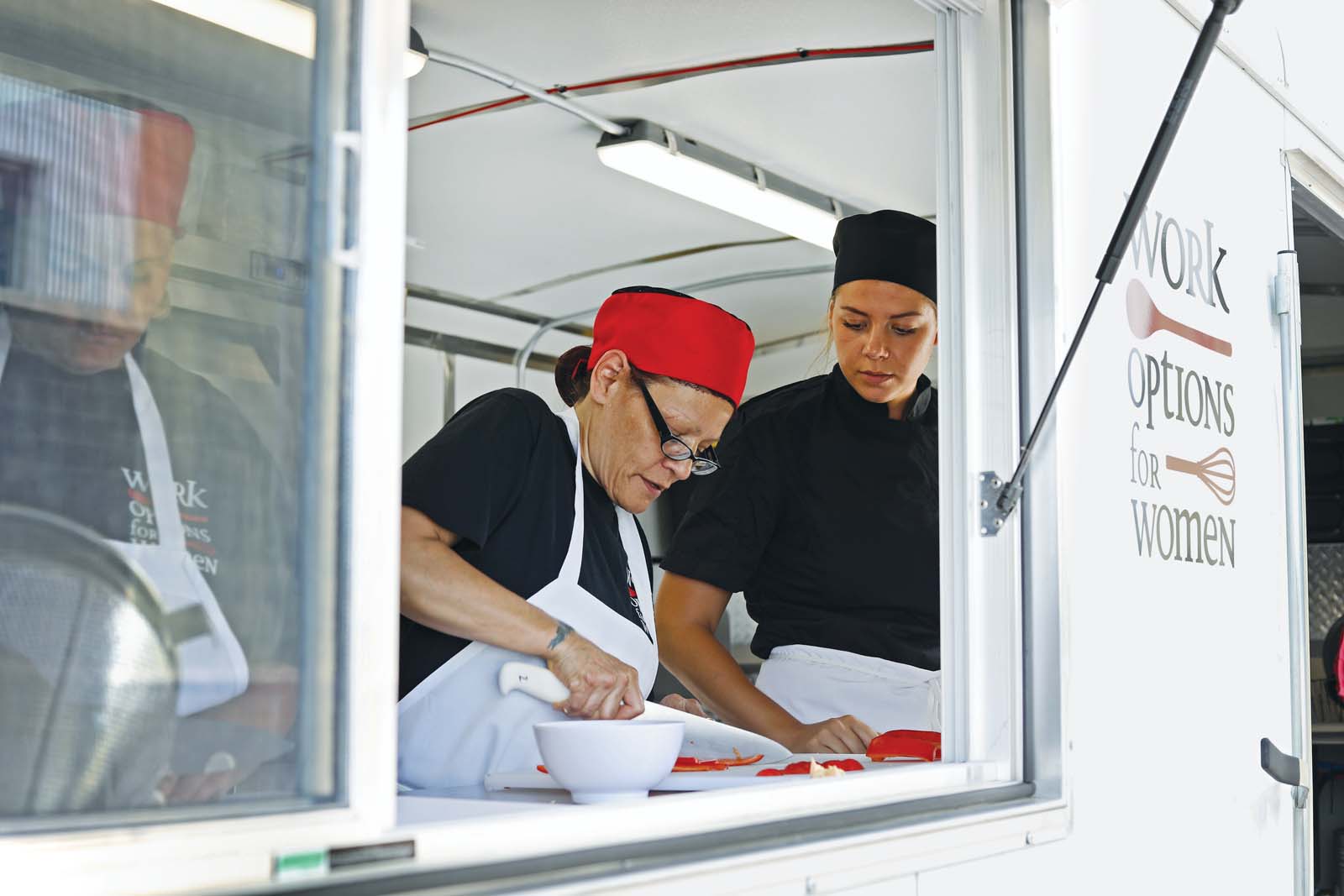The Local newsletter is your free, daily guide to life in Colorado. For locals, by locals.
Meals on Wheels was onto something when it rolled out more than 60 years ago: Disabilities or lack of transportation often prevent those in need from traveling to receive services. So, as the Mile High City expands and at-risk populations scatter across the metro area, more Denver nonprofits—including these three—are following in Meals on Wheels’ tread marks by going mobile.
Work Options for Women
Roadblock: Court-mandated meetings can keep ex-cons from attending trade schools. And with rent due (halfway houses charge $17 to $21 per day), new releases often take the first job they find instead of prepping for a stable one.
Alternate Route: Work Options for Women (WOW) installed a stove, fryer, and other professional kitchen equipment in a 26-foot trailer. The nonprofit hauls its new-in-April mobile culinary classroom to Denver metro area halfway houses, where six students at a time can take a six-week course and emerge with food-prep skills, restaurant job readiness certificates, and letters of recommendation. Plus, WOW pays students enough to cover their halfway house rent while they learn.
Bayaud Enterprises
Roadblock: When folks aren’t sure where they’ll be sleeping, laundry stops being a priority. Steady income would help them secure housing, but wearing a dirty shirt to an interview doesn’t impress prospective employers.
Alternate Route: In 2017, Bayaud, a nonprofit that helps underprivileged individuals find jobs, converted a commercial vehicle into the Laundry Truck. The rolling laundromats (a second one debuted in May) stop at high-traffic Denver locations, like the Gathering Place, and wash garments for free. Each truck is staffed by four workers experiencing poverty; they earn a living wage and develop good employee habits, such as punctuality, while folding 1,000 pounds of clothes per week.
Food for Thought
Roadblock: Although more than 379,000 students in Colorado qualify for free or reduced-price school lunches, many of those kids still face bare cupboards on the weekends.
Alternate Route: Every Friday, Food for Thought volunteers pack bags with 12 to 15 nonperishable items. Trucks then drive the “PowerSacks” to the 28 Denver Public Schools where 90 percent or more of the student body receives free or reduced-price lunches (every kid gets one, lessening shame). Since its launch in 2012, Food for Thought—named the Denver Metro Chamber of Commerce’s Small Nonprofit Organization of the Year in 2018—has delivered close to four million pounds of food.









